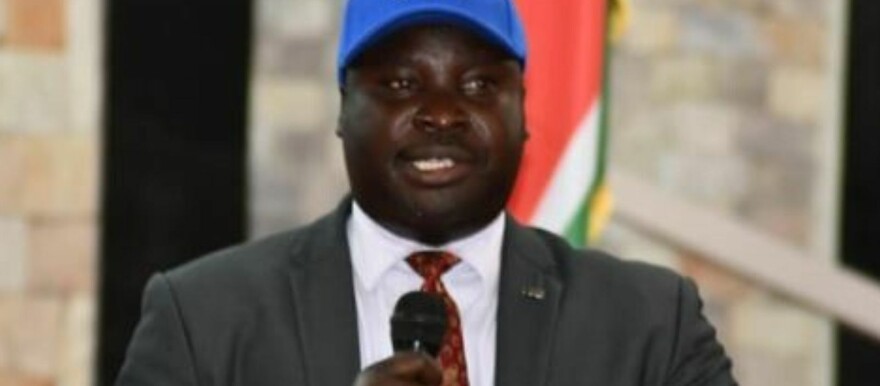The main opposition outfit in South Sudan and signatory of the 2018 revitalized peace agreement, the Sudan People’s Liberation Movement in Opposition (SPLM-IO), has suggested new timelines to accomplish pending tasks in the agreement, failure of which they will boycott the polls slated for December 2024.
Addressing a press conference in Juba on Friday, Nathaniel Oyet Pierino, the Deputy Chairperson of the SPLM-IO who also doubles as the First Deputy Speaker of the Transitional National Legislative Assembly (TNLA), said that after evaluating the progress of implementation of the peace agreement, the SPLM-IO’ Political Bureau established that preconditions for holding credible and free and fair polls are not in place.
Oyet said that the SPLM-IO proposes 24 months to complete the Permanent Constitution, 8 months to complete the security arrangements, 16 months for the conduct of a population census, and 8 months for judicial reforms among other timelines.
“We reiterate that the implementation of the peace agreement is the viable means to end political violence. We are now talking of relative peace, it is not absolute peace and what South Sudan is looking for is durable sustainable peace,” Oyet said. “We cannot transit based on relative peace if we do not unify the army, police, security, and the rest. What if a lunatic decides to trigger a war, the country will plunge back into conflict and that is why we want all the forces to be unified.”
The SPLM-IO deputy chairperson also stated that throughout the Roadmap, they have also registered critical violations of the peace agreement forward.
“One of them is the SPLM-Party-in Government (IG)- taking over the petroleum ministry which was allocated to SPLM-IO. This was done by the SPLM Party through Republican order No. 3 2024 which scrapped the powers of the minister of petroleum and arrogated the same to the ministry’s undersecretary and the Director General of the Petroleum Authority,” he charged. “As the petroleum ministry stands now, it belongs to the SPLM Party in Government (IG) and this is a violation of the agreement and the constitution.”
Oyet added: “There has been continuous harassment, detention, torture, and disappearances of members of the SPLM-IO in the states, for example, the arrest and continued detention of four senior officers and two bodyguards in Torit for over a year without trial.”
He said South Sudan is the only country in the region where people are arrested and detained for years without trial.
On the way forward, the SPLM-IO said that based on their evaluation of the work done and pending tasks and timelines, many provisions from all chapters of the peace agreement remain incomplete and the outfit proposed new timelines to finish them.
“The completion of security arrangements, phase 1 and 2, to be completed within 8 months. There is a lot of work to be done in the security arrangements and that is why we are saying we need 8 months,” Oyet explained. “The Permanent Constitution Making Process to be completed within 24 months. The original timeframe was 24 months but now we have seen the National Constitutional Review Commission (NCRC) is already in place and we welcome this but now the actual activities must begin so give the NCRC a budget so that it can deliver the constitution.”
He also said that they propose that the conduct of a population census be done within 16 months and judicial reforms within 8 months, including establishing the constitutional court.
“You cannot have a Chief Justice who is a member of a party. He was in Wau the other day wearing SPLM Party colors endorsing a candidate for the elections,” Oyet castigated. “Should we then go for elections and have disputes, who do we petition?”
The opposition outfit proposed 8 months for the repatriation of refugees and settlement of IDPs and 4 months to establish the Commission for Truth Reconciliation and Healing (CTRH), Hybrid Court, and the Reparations Authority that will deal with Transitional Justice Mechanisms.
“We also propose 6 months to disseminate the 2018 peace agreement and one month for the reconstitution of independent commissions and institutions because this does not require money because the names and our nominees are ready but there is lack of political will on the other side,” he stated. “Pre-election activities require a minimum of 11 months, especially voter registration and you need offices, a budget, and elections software and ballot designs among other things to be done.”
“In the above prerequisites, it is the constitution-making process which has the longest timeline and the other concurrent activities including setting the time for elections,” Oyet added.




